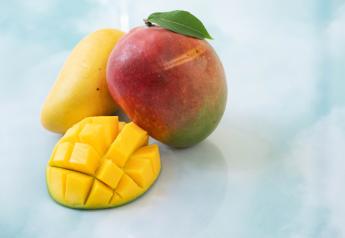A healthy-food journalist comes clean

I have a confession: My shopping and eating habits have been influenced by the “Dirty Dozen” and “Clean 15” lists. And I’m a journalist who’s been exclusively covering food, health and fitness for about a decade.
I’ve veered toward organic berries and greens in the supermarket produce aisle because I remembered the top three “dirty” items. As a new mom of an infant who’s about to eat solid food in the coming weeks, I weigh whether I will stick to organic or go with conventional too for his first slobbery bites.
The 2020 lists of fresh vegetables and fruits with the most and least pesticides were released March 25, prompting the annual uproar.
I’m a little embarrassed to admit that at some point years ago, I had that “Dirty Dozen” list attached to my fridge door.
I wrote wellness, natural-promoting articles for the crunchy, “well-thy,” foodie, fitness-crazed crowd, for some of the target audiences of Bon Appetit, Women’s Health, Men’s Health, Eat This, Not That, USA Today and Westchester Magazine.
Sure, due to my research, I didn’t trust the partisan lobbying group that publishes the list.
True, my journalism studies have drilled into my brain that as professional reporters, we have a responsibility to check the reliability and integrity of our sources and not cite just any ol’ statement as fact.
The list author, the Environmental Working Group, is an activist organization that has fielded criticism of fear-mongering without using scientific principles, which show that the dozen in question are perfectly safe for consumers, even babies.
But the fear. Oh, the fear.
New coronavirus aside (it’s nice to take a short break from thinking about that, if possible), one of the biggest health concerns is cancer. Oftentimes, we don’t know what causes it.
Uncertainty is breeding ground for fear, even for this healthy-food expert.
Yet I have to do what I can to be healthy and then focus on the greater good for my sanity. And to me, that means eating fresh produce, regardless of whether it was grown with synthetic or natural pesticides.
If I can’t afford to buy organic produce, I know that eating conventional fresh fruits and vegetables is better than none at all.
I realize if I’m not eating fruits and vegetables of any kind, I’m eating more fat and sugar, which cause inflammation, which is supposedly the root of many diseases.
But many people don’t spend hours a day researching health and nutrition. Many people have only the fear and no extra money. They let the fear deter them from buying any produce at all. And that’s much, much worse than eating produce with pesticide levels significantly lower than the Environmental Protection Agency allows.
There’s a lot to fear these days. But I have faith (wavering sometimes, even though backed by scientific proof) that my washed produce, however it’s grown, is good for me. And my baby.
Amy Sowder is The Packer’s Northeast editor. E-mail her at asowder@farmjournal.com.
Related content:
Why we write about the 'Dirty Dozen'
2020 “Dirty Dozen” and “Clean 15” lists released
PBH promotes fruit and vegetables in a time of consumer fears







